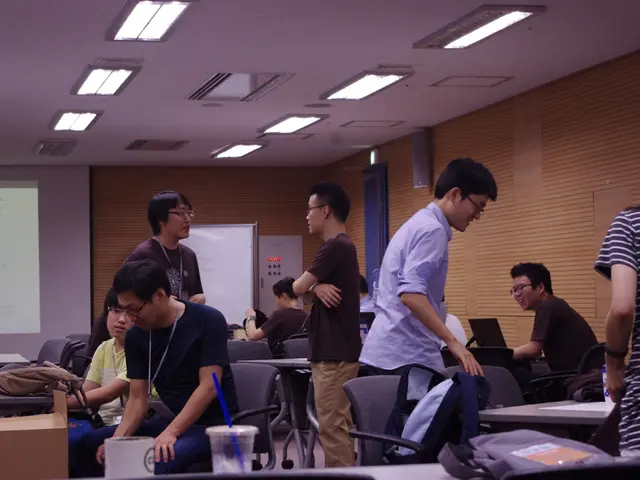Transform Yourself into a Data Scientist Effortlessly in 2022
In a remarkable career transformation, a recent graduate with degrees in Economics and Political Science embarked on a journey to become a data scientist, starting as a data analyst. This journey, filled with challenges and opportunities, offers valuable insights for those seeking to transition into the data science field from unrelated backgrounds.
After becoming aware of data science during their senior year, the individual created a self-study curriculum, which included learning SQL in just four hours the day before their data analyst job interview. This swift learning approach, while unconventional, demonstrates the determination required to break into the field.
The pathway to a data science career, as outlined by the individual, involves several key steps. First, acquiring fundamental skills is crucial. This includes mastering statistics and basic math, learning programming languages such as Python and SQL, becoming proficient in data visualization tools like Tableau or Power BI, and understanding experiment design and data storytelling.
Gaining practical experience is another essential aspect. Working on real-world datasets available on platforms like Kaggle or GitHub helps build a portfolio that showcases one's abilities. Creating projects that demonstrate data wrangling, cleaning, and visualization skills increases the chances of getting noticed by employers.
Building business acumen is also vital. Understanding metrics tied to business goals and translating analytic insights into actionable recommendations aligning with strategic objectives makes one a more valuable analyst.
Online resources and networking play a significant role in this journey. Following blogs, YouTube channels, and LinkedIn communities focused on data science and analytics keeps one updated on industry trends and best practices. Engaging with data professionals and attending relevant meetups or webinars expands one's network and provides opportunities to learn about job openings.
Considering structured learning paths is another option. Enrolling in certification courses or postgraduate programs specializing in data science or data analytics provides a formal education and mentorship, improving one's credibility.
Preparing for data analyst roles is crucial. Learning SQL and Python fluently, since these are commonly tested skills in data analyst job interviews, is essential. Practicing explaining analytical approaches and insights clearly, as communication is a vital skill in analyst roles, is also important.
Securing an entry-level data analyst role and growing within it is the final step. Applying for internships, apprenticeships, or junior data analyst positions, even with minimal direct experience, emphasizing one's portfolio and skill development, is key. Once in an analyst role, continuing to learn advanced analytics and data science skills prepares one for a data scientist career if desired.
The individual's career transition was not without its challenges. They quickly ran out of money while pursuing their self-study curriculum and at one point even took on a part-time job that led to burnout. However, they were able to secure a data analyst role with a medium-sized e-commerce site, which significantly impacted their career. This role allowed them to study more at their leisure and recover from burnout.
The individual's progress at work allowed them to secure a data scientist job within a short timeframe, with their work experience as a data analyst being critical. They interacted with many smart people working in data science during their career transition and even got references from people they worked with in the field.
In conclusion, transitioning from an unrelated field to a data science career requires consistent learning, practice on real data, business understanding, and communication proficiency. The individual's journey provides a roadmap for those seeking to follow a similar path, demonstrating that with determination and hard work, it is possible to achieve one's goals.
Technology plays a significant role in the individual's self-study curriculum, as they master programming languages like Python and SQL, essential for a data science career.
Education-and-self-development, through online resources and networking, played a vital part in the individual's journey, helping them stay updated on industry trends and best practices in data science and analytics.




